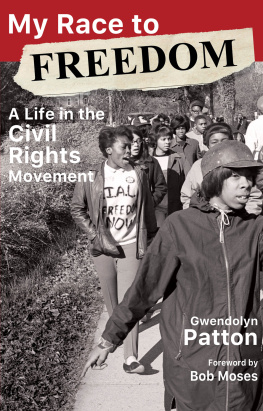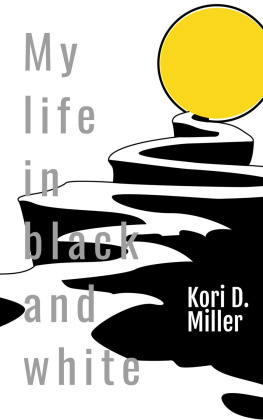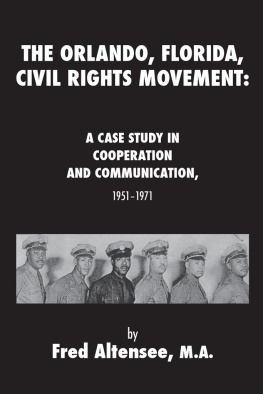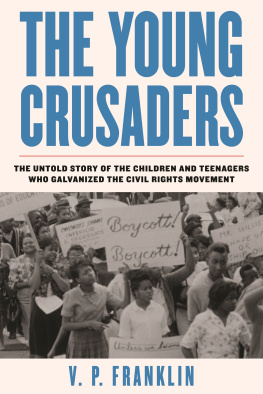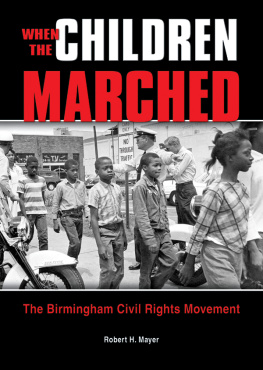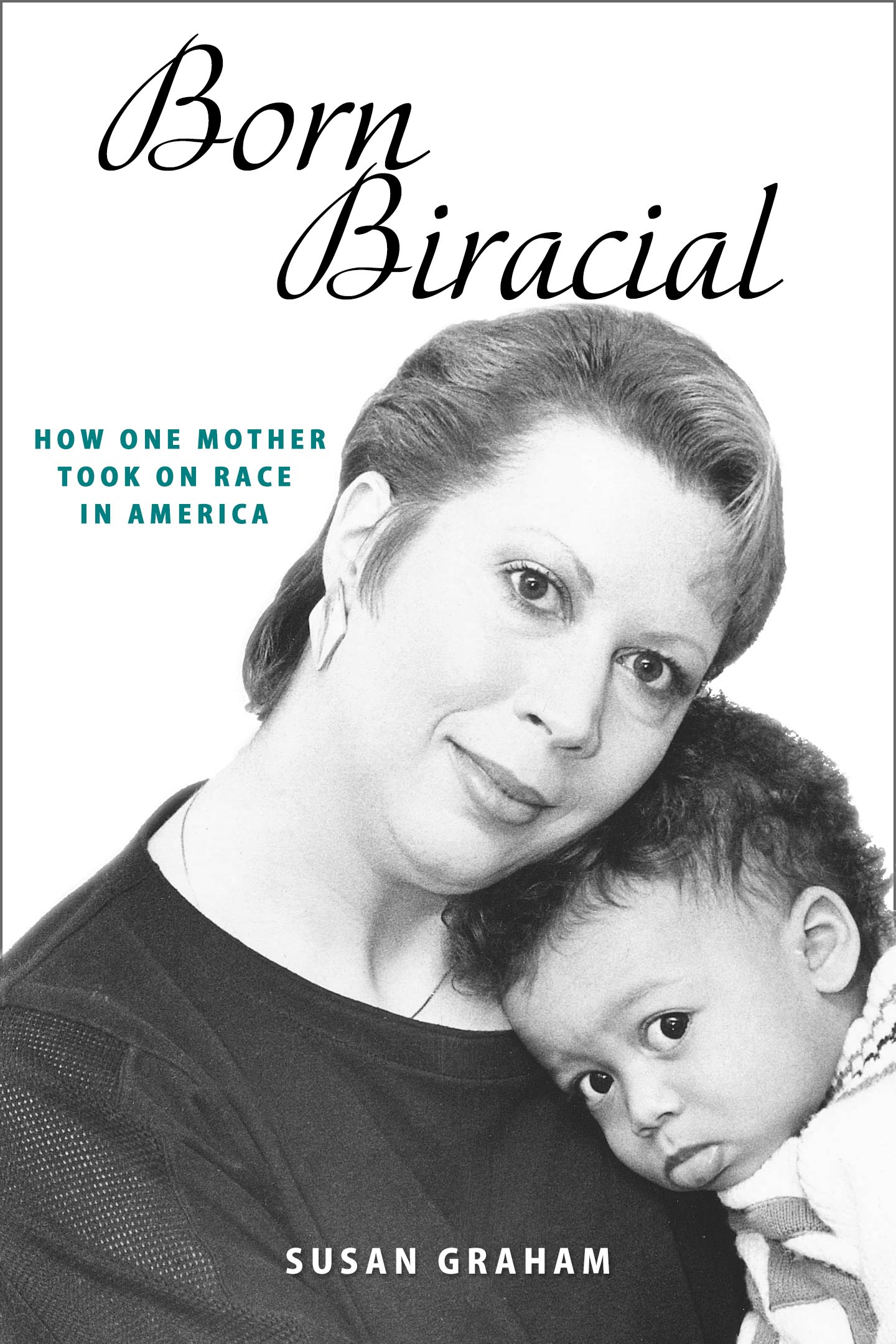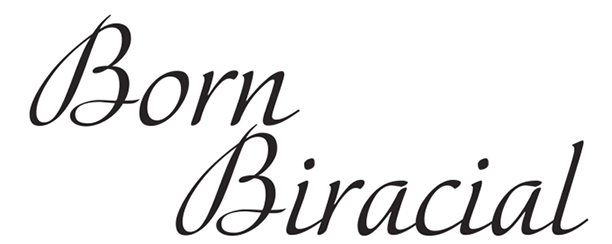Praise for Born Biracial
Parents arent supposed to bury their child, I recall saying in 1996 but that is just what I had to do when my youngest daughter passed away. I promised my daughter Michelle, a biracial daughter of a Black Panamanian father and a white mother that I would do my best to never allow that to happen again. More than 61,000 calls to the National Marrow Donor Program were generated by publicity from Michelles passing. The donor registry increased to 2 million in February 1999 aloneup from 1.5 million the previous year. If Michelle had been stricken with her childhood leukemia in 2019 her life most probably would have been saved. Michelle has and will continue to save lives, as will Project RACE and this book, Born Biracial. I urge everyone to read this book! You too can save lives.
Rod Carew
Baseball Hall of Fame
Cooperstown, New York
Born Biracial: How One Mother Took on Race in America is a long time coming; this is the lifetime work of Susan Graham. With her strong sense of self, she challenged the system that failed to recognize our biracial children. She has been a leader shaking up America by changing the laws that failed to be inclusive of biracial/multiracial children. This book is a reflection of her powerful influence with State Representatives and Governors which caused states to adopt new laws. In this book you will see the rush in Susan's heart as she made the path to ensure that all biracial people can self-identify. Excellent read!!
Sharyn Dones-Bergin
Attorney and Advocate
Within the pages of Born Biracial: How One Mother Took on Race in America, author Susan Graham has written a fascinating, but sometimes turbulent account of her journey and fight for posing one straightforward request; asking that her children and those who look like and share her childrens race have the right to magnify their race while self-identifying as citizens of our society.
Graham, a mother of two biracial children and the Director of Project RACE, reckoned with one minority organization after another demanding the self-identity, and respect of biracial/multiracial children.
For Graham and others alike, its really quite simple: The right of biracial/multiracial children to claim who they are is solely their right not yours. As a race, their voices should not be silenced. No child of any race should be discriminated against, or humiliated for claiming who they are, including children in the biracial/multiracial category.
Parents, Minority Organizations, Multicultural Organizations, and Educational Institutions should all own a copy of Born Biracial: How One Mother Took on Race in America.
Cherrye S. Vasquez, Ph.D.
Books That Sow Strength, Character & Diversity, DBA
Educator, Author, Blogger
Born Biracial: How One Mother Took on Race in America is an important narrative to teach about the history of the multiracial movement.
Alice Robbin, Ph.D.
Associate Professor Emerita
Indiana University
How One Mother Took on
Race in America
SUSAN GRAHAM
BORN BIRACIAL: HOW ONE MOTHER TOOK ON RACE IN AMERICA by Susan Graham
Copyright 2019 by Susan Graham
Published by Memories Press
www.bornbiracialbook.com
All rights reserved. No part of this book may be used or reproduced in any manner whatsoever without written permission, except in the case of brief quotations in critical articles and reviews.
Cover design by Jose Ramirez
Front cover photo by Daymon J. Hartley
Library of Congress Control Number: 2019903912
ISBN: 978-1-7339088-2-5 Paperback edition
978-1-7339088-1-8 Hardcover edition
978-1-7339088-0-1 Digital edition
Printed in the United States of America
Authors Note
T his book is a memoir with a special focus on a matter of urgent and enduring debate in America today the role of race in American identity, and the special challenges faced by people of biracial and multiracial ancestry.
Race is an issue that reaches deeply into personal life and often arises in the relationships of family, friends and colleagues. But it is also a matter of federal law and policy. In fact, as you will soon see, the question of racial identity impacted my family in an especially intimate way when I discovered that U.S. census form provided no race category for my own biracial children. I suddenly had to think about race.
That was the starting point of my own commitment to changing the public conversation about race in America, and from that moment on, I dedicated my life and work to the goal of affording full participation in our culture and democracy to biracial and multiracial Americans. This book is a part of my contribution to that public conversation.
Most of the people mentioned in my book are public figures who participated in one way or another in the struggle that I describe. First Amendment rights and the right to free speech are taken into consideration. On a few occasions, I refer to someone by a fictionalized name, and when I do, it will be noted in the text. Any similarity between fictionalized names and real individuals is strictly coincidental.
Dedicated to my son, Ryan,
with all my love
CONTENTS
CHAPTER 1
How it Started
Theres no bitch on earth like a mother frightened for her kids.
Stephen King
I was a mother who believed race would not play a part in the lives of my two biracial children. Nave? I didnt think so when they were born. For over eight years my husband and I never encountered any particular problems as an interracial couple, nor had we as a family. After all, this was Detroit during the 1980s, a time when earlier racial strife had become just a tragic memory, and the first Black mayor was at Detroits helm. So, naturally, I thought of my children as Ryan and Megan, not as biracial or multiracial people, not different from me or their father, but a wonderful combination of both of us. Eventually, things would change as I was asked, What are they?
I had not been asked their race or races when they were born. There was nothing about race on their birth certificates. Race was just not a factor in our lives. My family accepted Gordon and his family accepted me. We were a hard-working, middle-class family living in the near north suburbs. We had a lot of friends and socialized with people at the TV station where Gordon was a news reporter. Gordon won an Emmy for his series on guns in Detroit schools. Life was good. None of us could have foreseen the changes in each of our lives that were about to occur.
Did I mention why it meant so much to me to be a mother? Because I never thought I could be. In my early twenties I was diagnosed with an abnormal hormonal condition that would make conception impossible. It was a hard verdict to accept as my friends married and began to have children of their own, but there was nothing I could do about it, so I decided to put my energies toward my career and enjoy my freedom. There were challenging jobs. There were boyfriends. And for no-stress companionship, I took in a kitten. My 29th birthday passed and I believed I was content with things as they were.
I had recently gone through a tough romantic break-up and became interested in meeting a well-known African-American man who lived in my complex. One evening, mutual friends who were also neighbors, introduced me to him. At that time Gordon Graham was a street reporter and part-time anchor for Detroits ABC station, WXYZ-TV. I thought it might be nice to spend some time with him, and he obliged. I never expected it would go past that stage because he was 15-years-older than Iand married.


